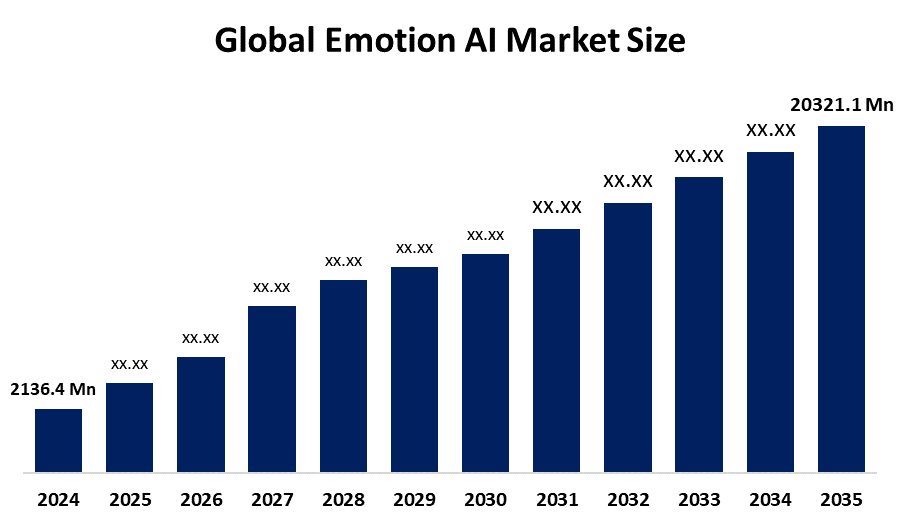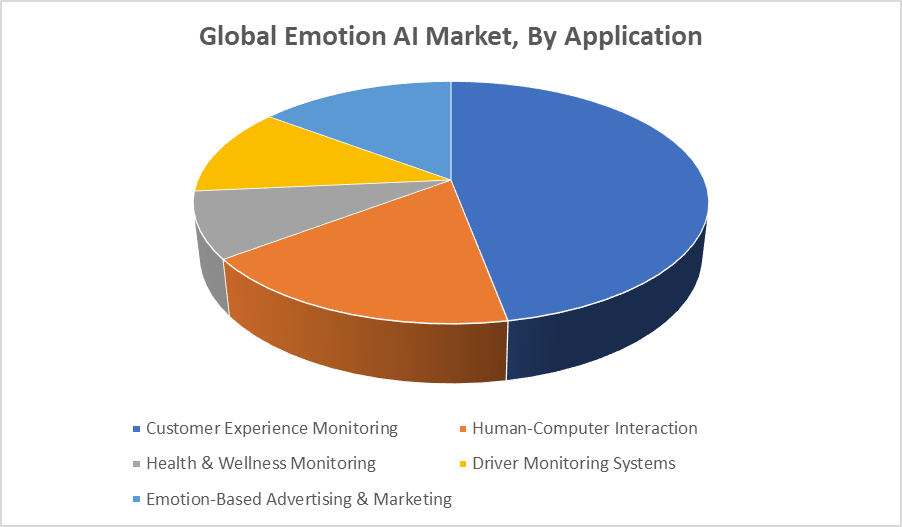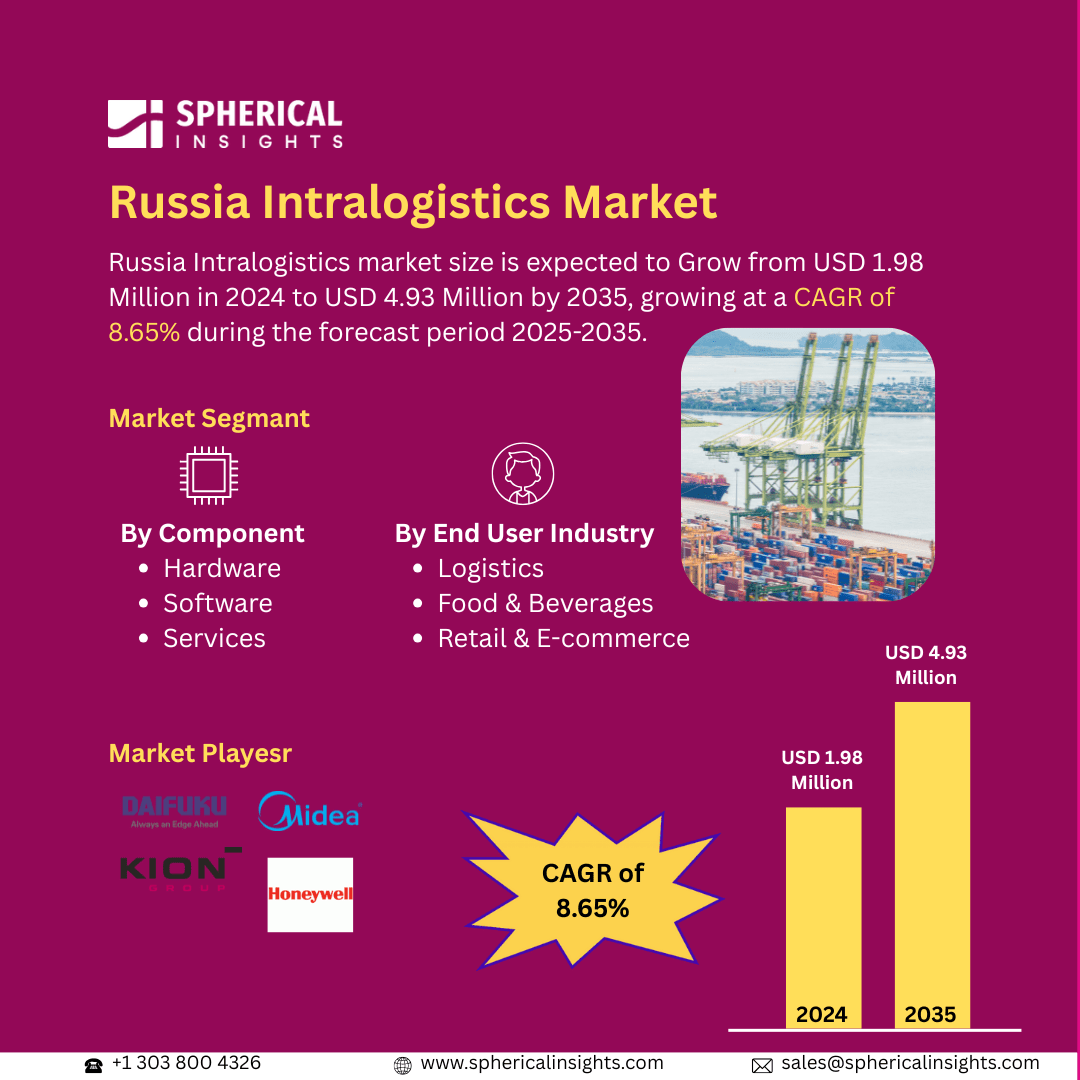Global Emotion AI Market Insights Forecasts to 2035
- The Global Emotion AI Market Size Was Estimated at USD 2136.4 Million in 2024
- The Market Size is Expected to Grow at a CAGR of around 22.73% from 2025 to 2035
- The Worldwide Emotion AI Market Size is Expected to Reach USD 20321.1 Million by 2035
- Asia Pacific is expected to grow the fastest during the forecast period.

Emotion AI Market
The global emotion AI market involves technologies that detect and interpret human emotions through facial expressions, voice, and physiological signals. Emotion AI, also known as affective computing, enhances human-machine interaction by enabling systems to respond empathetically in sectors like healthcare, retail, automotive, and customer service. Governments worldwide support Emotion AI development through initiatives promoting AI research, innovation, and ethical guidelines to ensure responsible use. These efforts include funding programs, regulatory frameworks, and partnerships between public and private sectors. The market is experiencing rapid growth driven by increasing demand for personalized experiences, advances in machine learning, and integration with IoT and smart devices. Key applications include mental health monitoring, smart assistants, and safety systems in vehicles. With ongoing investments in research and development, the emotion AI market is poised to revolutionize how technology understands and responds to human emotions, creating more intuitive and effective digital interactions globally.
Attractive Opportunities in the Emotion AI Market
- Emotion AI offers significant potential to improve mental health monitoring and enable personalized treatment plans, addressing a growing global focus on emotional well-being and mental health solutions.
- By leveraging emotion AI to analyze customer emotions in real time, businesses can deliver tailored marketing campaigns and superior service experiences, boosting customer satisfaction and loyalty.
- The growing adoption of smart home technology and virtual assistants opens new avenues for more intuitive and emotionally intelligent user interactions, creating seamless and personalized digital experiences.
Global Emotion AI Market Dynamics
DRIVER: Emotion AI helps businesses understand consumer feelings and preferences
Emotion AI helps businesses understand consumer feelings and preferences, enabling tailored services and improved engagement. Secondly, advancements in machine learning, natural language processing, and computer vision technologies have significantly enhanced the accuracy and reliability of emotion detection systems. Thirdly, the rise of smart devices and IoT integration allows seamless implementation of Emotion AI in everyday products like smartphones, wearables, and automotive systems. Additionally, growing awareness of mental health and the need for better emotional well-being solutions are fueling adoption in healthcare and wellness sectors. Supportive government initiatives and increased investment in AI research also contribute to market expansion. Collectively, these factors are driving rapid innovation and widespread deployment of Emotion AI technologies, fueling robust market growth worldwide.
RESTRAINT: Regulatory uncertainties around data protection and ethical use of Emotion AI slow down adoption in some regions
Privacy concerns are a major challenge, as emotion recognition requires collecting and analyzing sensitive personal data, raising fears about misuse and data security. Regulatory uncertainties around data protection and ethical use of Emotion AI slow down adoption in some regions. Additionally, the technology still faces limitations in accurately interpreting diverse emotional expressions across different cultures and demographics, which can affect reliability and acceptance. High development and implementation costs also restrict smaller businesses from adopting Emotion AI solutions. Moreover, integration complexities with existing systems and the need for large, high-quality datasets to train AI models pose technical barriers. These factors combined can hinder widespread adoption and slow market growth despite increasing interest. However, ongoing efforts by governments and companies aim to address these challenges through improved regulations and technological advancements.
OPPORTUNITY: Integration with smart home devices and virtual assistants opens new avenues
Growing adoption in healthcare offers potential for improved mental health monitoring and personalized treatment plans. In retail, Emotion AI can enhance customer engagement through tailored marketing and better service experiences. The automotive industry benefits from emotion detection to increase driver safety and comfort. Integration with smart home devices and virtual assistants opens new avenues for more intuitive user interactions. Additionally, expanding use in education enables adaptive learning based on student emotions, improving outcomes. Emerging markets show increasing interest, driven by digital transformation initiatives and rising AI awareness. Continuous advancements in AI technologies and supportive government policies further create a favorable environment for innovation and expansion, making Emotion AI a rapidly evolving and lucrative market.
CHALLENGES: Bias in training data can lead to unfair or incorrect results
Ensuring data protection and complying with diverse regulations worldwide adds complexity for developers and users. Accuracy remains a challenge, as emotional expressions vary widely across cultures, ages, and individual differences, making consistent interpretation difficult. Bias in training data can lead to unfair or incorrect results. Additionally, high costs for developing and implementing sophisticated emotion AI systems limit accessibility for smaller businesses. Integration with existing technologies can also be complex. Addressing these challenges requires ongoing research, robust ethical guidelines, and transparent practices to build trust and ensure responsible use of Emotion AI technologies globally.
Global Emotion AI Market Ecosystem Analysis
The global emotion AI market ecosystem includes technology providers developing AI algorithms, hardware manufacturers supplying sensors and devices, and solution integrators creating industry-specific applications. End-users across healthcare, retail, automotive, and education adopt these solutions to enhance experiences and safety. Government and regulatory bodies establish policies ensuring ethical use and data privacy. Research institutions drive innovation by advancing affective computing technologies and addressing ethical concerns. Together, these players collaborate to foster market growth, technological advancements, and responsible Emotion AI deployment worldwide.
Based on the technology, the machine learning segment accounted for the largest market revenue share over the forecast period
The machine learning segment held the largest share of the emotion AI market during the forecast period. This is because machine learning helps systems better understand and recognize human emotions by learning from large amounts of data. It improves the accuracy of emotion detection through facial expressions, voice, and other signals. Machine learning is widely used in areas like healthcare, customer service, and automotive safety, making it a key part of Emotion AI. As technology continues to improve, machine learning is expected to remain the most important and widely used technology in this market.
Based on the application, the customer experience monitoring segment accounted for the largest market revenue share during the forecast period

The customer experience monitoring segment accounted for the largest market revenue share during the forecast period. This is because businesses are increasingly using Emotion AI to better understand customer emotions and behavior in real time. By analyzing facial expressions, voice tone, and other cues, companies can improve service quality, personalize interactions, and boost customer satisfaction. Industries like retail, banking, and hospitality are adopting these solutions to enhance user engagement and loyalty. As customer experience becomes a key competitive factor, the demand for Emotion AI in this segment continues to grow rapidly.
North America is anticipated to hold the largest market share of the emotion AI market during the forecast period
North America is anticipated to hold the largest market share of the emotion AI market during the forecast period. This dominance is driven by the early adoption of advanced technologies, strong presence of leading Emotion AI companies, and high investment in AI research and development. The region's growing demand for personalized customer experiences across industries like healthcare, retail, and automotive also supports market growth. Additionally, supportive government initiatives and a well-established technology infrastructure further strengthen North America's position in the global emotion AI market.
Asia Pacific is expected to grow at the fastest CAGR in the emotion AI market during the forecast period
Asia Pacific is expected to grow at the fastest CAGR in the emotion AI market during the forecast period. This rapid growth is driven by increasing digitalization, rising adoption of AI technologies, and expanding applications in sectors like healthcare, education, and retail. Countries such as China, Japan, South Korea, and India are heavily investing in AI research and smart technologies. Additionally, a large and tech-savvy population, along with growing demand for personalized and emotionally intelligent digital experiences, is fueling market expansion. Supportive government policies and initiatives are also playing a key role in accelerating the adoption of emotion AI across the region.
Recent Development
- In August 2025, Meta announced the acquisition of WaveForms AI, an audio-focused Emotion AI startup that detects and replicates emotional cues in human voice. This move strengthens Meta’s capabilities in creating emotionally expressive voice interactions for VR, AR, and metaverse applications.
Key Market Players
KEY PLAYERS IN THE EMOTION AI MARKET INCLUDE
- Amazon Web Services (AWS)
- Affectiva
- Realeyes
- Beyond Verbal
- Kairos
- NEC Corporation
- Others
Market Segment
This study forecasts revenue at global, regional, and country levels from 2020 to 2035. Spherical Insights has segmented the emotion AI market based on the below-mentioned segments:
Global Emotion AI Market, By Technology
- Machine Learning
- NLP
- Computer Vision
Global Emotion AI Market, By Application
- Customer Experience Monitoring
- Human-Computer Interaction
- Health & Wellness Monitoring
- Driver Monitoring Systems
- Emotion-Based Advertising & Marketing
Global Emotion AI Market, By Regional Analysis
- North America
- Europe
- Germany
- UK
- France
- Italy
- Spain
- Russia
- Rest of Europe
- Asia Pacific
- China
- Japan
- India
- South Korea
- Australia
- Rest of Asia Pacific
- South America
- Brazil
- Argentina
- Rest of South America
- Middle East & Africa
- UAE
- Saudi Arabia
- Qatar
- South Africa
- Rest of the Middle East & Africa





